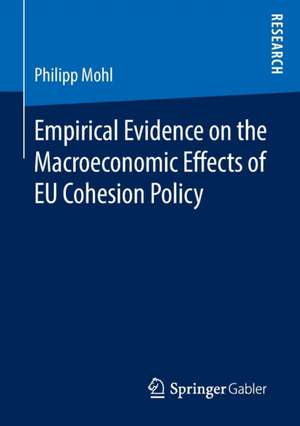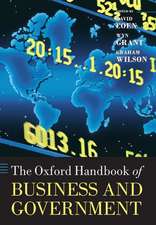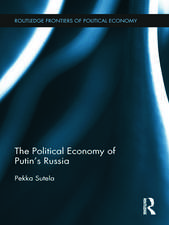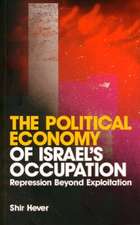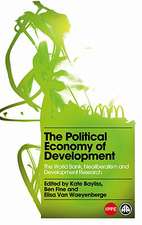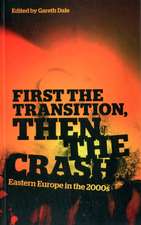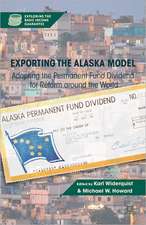Empirical Evidence on the Macroeconomic Effects of EU Cohesion Policy
Autor Philipp Mohlen Limba Engleză Paperback – 12 mai 2016
Preț: 381.21 lei
Nou
Puncte Express: 572
Preț estimativ în valută:
72.94€ • 76.36$ • 60.36£
72.94€ • 76.36$ • 60.36£
Carte tipărită la comandă
Livrare economică 07-21 aprilie
Preluare comenzi: 021 569.72.76
Specificații
ISBN-13: 9783658138516
ISBN-10: 3658138513
Pagini: 173
Ilustrații: XIII, 173 p. 21 illus.
Dimensiuni: 148 x 210 x 11 mm
Greutate: 0.25 kg
Ediția:1st ed. 2016
Editura: Springer Fachmedien Wiesbaden
Colecția Springer Gabler
Locul publicării:Wiesbaden, Germany
ISBN-10: 3658138513
Pagini: 173
Ilustrații: XIII, 173 p. 21 illus.
Dimensiuni: 148 x 210 x 11 mm
Greutate: 0.25 kg
Ediția:1st ed. 2016
Editura: Springer Fachmedien Wiesbaden
Colecția Springer Gabler
Locul publicării:Wiesbaden, Germany
Cuprins
Survey of the Econometric Evaluation of EU Cohesion Policy.- Impact on Regional Economic Growth.- Impact on Regional Employment.- Impact on Public Investment.
Notă biografică
Philipp Mohl holds Master’s degrees in Economics and Political Science from the Free University Berlin. His Ph.D. thesis was supervised by Prof. Feld and Prof. Dreher, Faculty of Economics at the University of Heidelberg.
Textul de pe ultima copertă
Philipp Mohl evaluates the macroeconomic effects of EU Cohesion Policy with the help of empirical methods. His findings indicate that in particular the part of EU Cohesion Policy which is spent for the poorest regions (the so-called Objective 1 funding) has a positive and statistically significant impact on economic growth. Moreover, the employment effects of EU Cohesion Policy seem to be conditional on the educational attainment, i.e., in particular regions with a high share of high-skilled population tend to benefit from EU funds. Finally, the author does not find evidence that EU funds significantly increase public investment in the EU countries, which points to a crowding out of national investment. Overall, the gained insights contribute to a more profound understanding of the macroeconomic effects of EU Cohesion Policy, which is essential to design an effective and efficient EU spending system.
Contents
• Survey of the Econometric Evaluation of EU Cohesion Policy
• Impact on Regional Economic Growth
• Impact on Regional Employment
• Impact on Public Investment
Target Groups
• Researchers and students in the fields of economics and political science
• European institutions, German research institutions
The Author
Philipp Mohl holds Master’s degrees in Economics and Political Science from the Free University Berlin. His Ph.D. thesis was supervised by Prof. Feld and Prof. Dreher, Faculty of Economics at the University of Heidelberg.
Caracteristici
Publication in the field of economic sciences Includes supplementary material: sn.pub/extras
